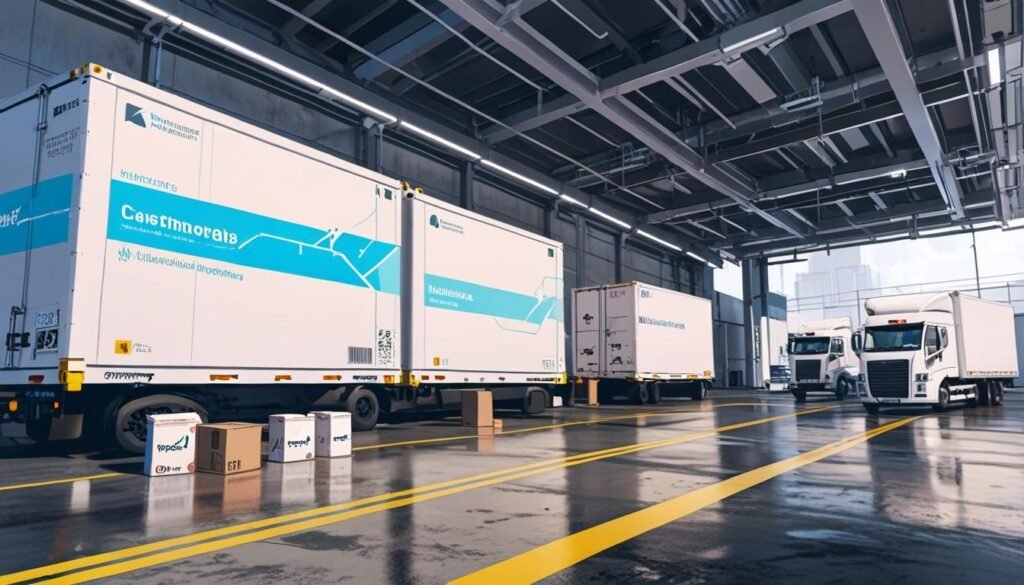**Global pharmaceutical sector:** AI is revolutionising drug delivery by optimising route planning, temperature control, real-time tracking, regulatory compliance, cost efficiency, and predictive analytics, improving safety and reliability in the complex logistics of pharmaceutical shipments worldwide.
The pharmaceutical logistics sector plays a vital role in ensuring that medicines reach their intended destinations promptly, safely, and under controlled conditions. Delivering pharmaceutical products involves navigating a series of complex challenges including maintaining strict temperature controls, adhering to regulatory compliance, managing unpredictable demand, and guaranteeing prompt deliveries. These factors directly impact the quality and efficacy of pharmaceuticals, making logistics a critical component of patient safety.
Recent advancements in software and artificial intelligence (AI) technologies are increasingly being leveraged to address these challenges within pharmaceutical supply chains. According to Purav Gandhi, CEO of Healthark Insights, AI-driven innovations are revolutionising pharmaceutical shipping and delivery processes by filling operational gaps and improving overall efficiency.
One key strategy involves pharmaceutical companies partnering with third-party logistics (3PL) providers to manage transportation, warehousing, and quality control. Leading global 3PL firms such as Maersk, DHL, UPS Healthcare, and FedEx specialise in temperature-controlled shipping and regulatory compliance, services that are integral to the safe distribution of sensitive pharmaceuticals.
AI’s impact on pharma logistics is especially notable in six primary areas:
-
Dynamic Route Planning
AI systems analyse real-time traffic, weather, and historical data to optimise delivery routes, thereby minimising delays caused by road conditions, natural disasters, or geopolitical events. For instance, Maersk employs AI algorithms to dynamically plan shipping routes by considering factors such as ocean currents and weather patterns, ensuring timely shipments while reducing risks of product degradation during transit. -
Real-time Tracking
Pharmaceutical shipments often traverse thousands of miles globally, making their tracking complex. AI-powered tracking technologies allow stakeholders to access up-to-date status information on shipments. FedEx uses AI to forecast delivery delays by analysing weather and traffic conditions, communicating any relevant updates to customers in real time to improve transparency. -
Cost Efficiency Optimization
AI tools aid in reducing operational costs across various facets of delivery management. Dynamic routing lowers fuel consumption, automation reduces labour expenses, and predictive analytics optimises vehicle maintenance schedules. Collectively, these cost savings enable pharmaceutical companies to reallocate resources toward strategic objectives. -
Advanced Temperature Reporting
Temperature management is critical for maintaining pharmaceutical product integrity. AI-integrated Internet of Things (IoT) devices provide continuous monitoring of temperature and humidity throughout transit. DHL’s SmarTrucking service, notably available in India, incorporates IoT-enabled sensors to offer real-time shipment temperature data to customers, allowing immediate response if any deviations occur without requiring frequent manual inspections. -
Regulatory Compliance Monitoring
Given the stringent regulatory environment governing pharmaceutical transit, AI aids in continuous compliance monitoring. It tracks temperature data against industry standards and alerts teams in the event of potential violations. Kuehne + Nagel’s “KN PharmaChain” exemplifies this approach by ensuring that pharmaceutical transport complies with strict regulations, thereby standardising logistics services in this sector. -
Predictive Analytics
Through analysis of historical and real-time data, AI predicts market demand fluctuations, enabling logistics managers to adjust fleet sizes and delivery schedules proactively. Additionally, IoT sensors embedded in vehicles collect performance metrics such as engine temperature and tyre pressure. UPS, for example, uses this data to anticipate vehicle maintenance needs to minimise unexpected breakdowns and maximise operational uptime.
These AI-driven interventions are increasingly becoming central to the pharmaceutical logistics industry’s efforts to modernise and enhance the reliability of drug delivery systems. As companies continue to explore new technologies and refine existing solutions, the sector anticipates further innovations that could transform supply chains in the coming years. The Pharmaceutical Commerce publication is reporting these developments and their implications for pharmaceutical logistics worldwide.
Source: Noah Wire Services





